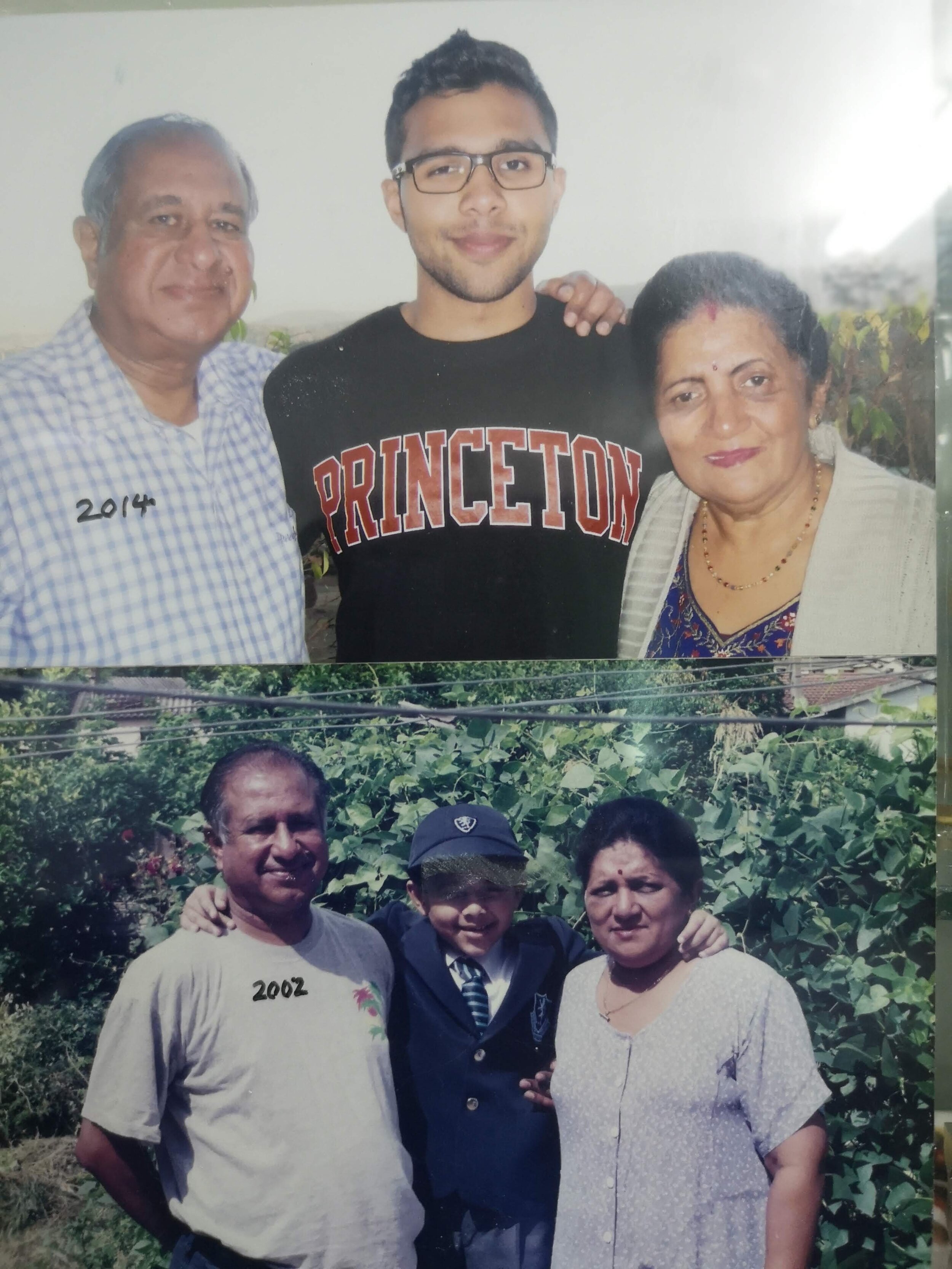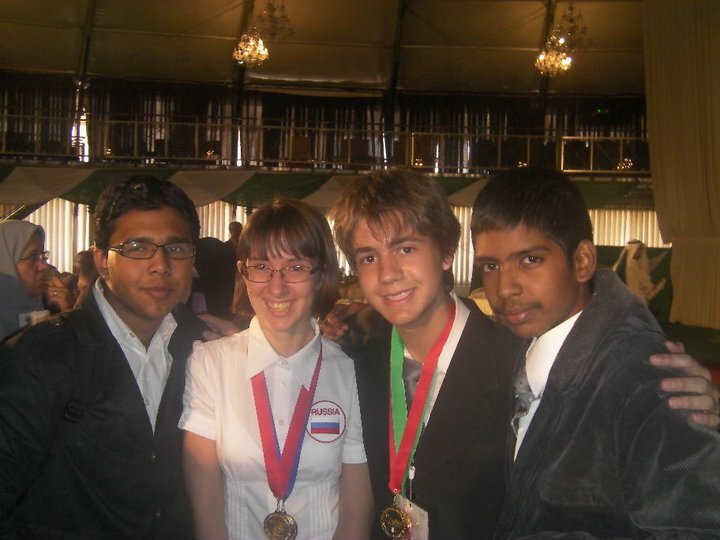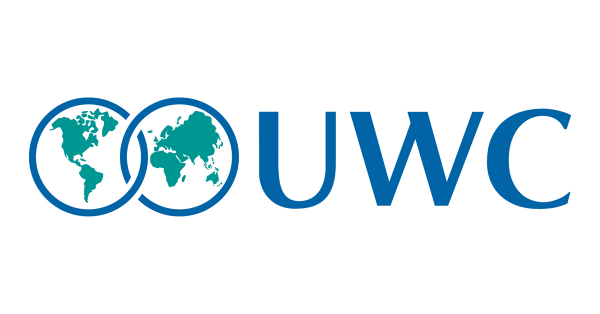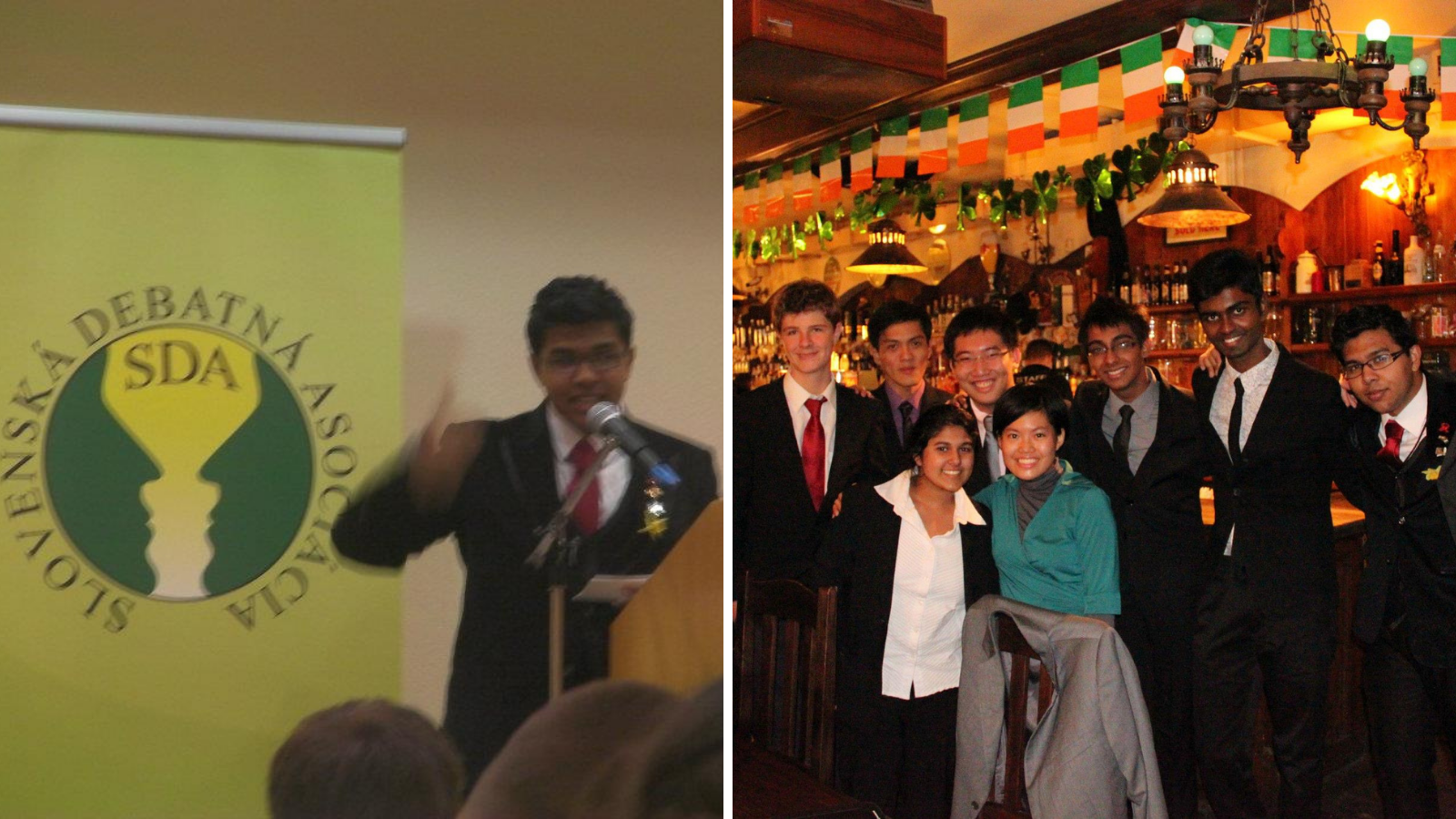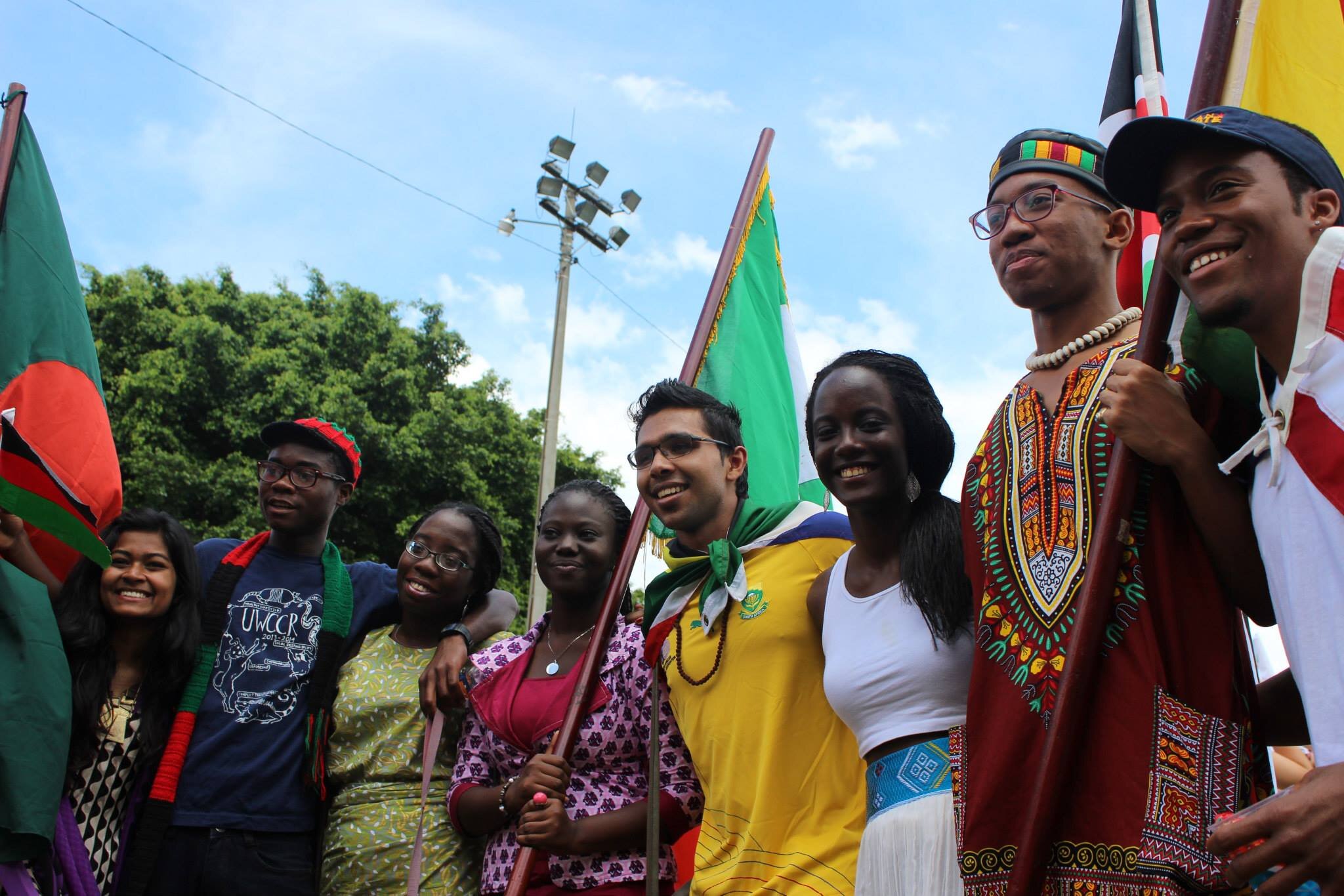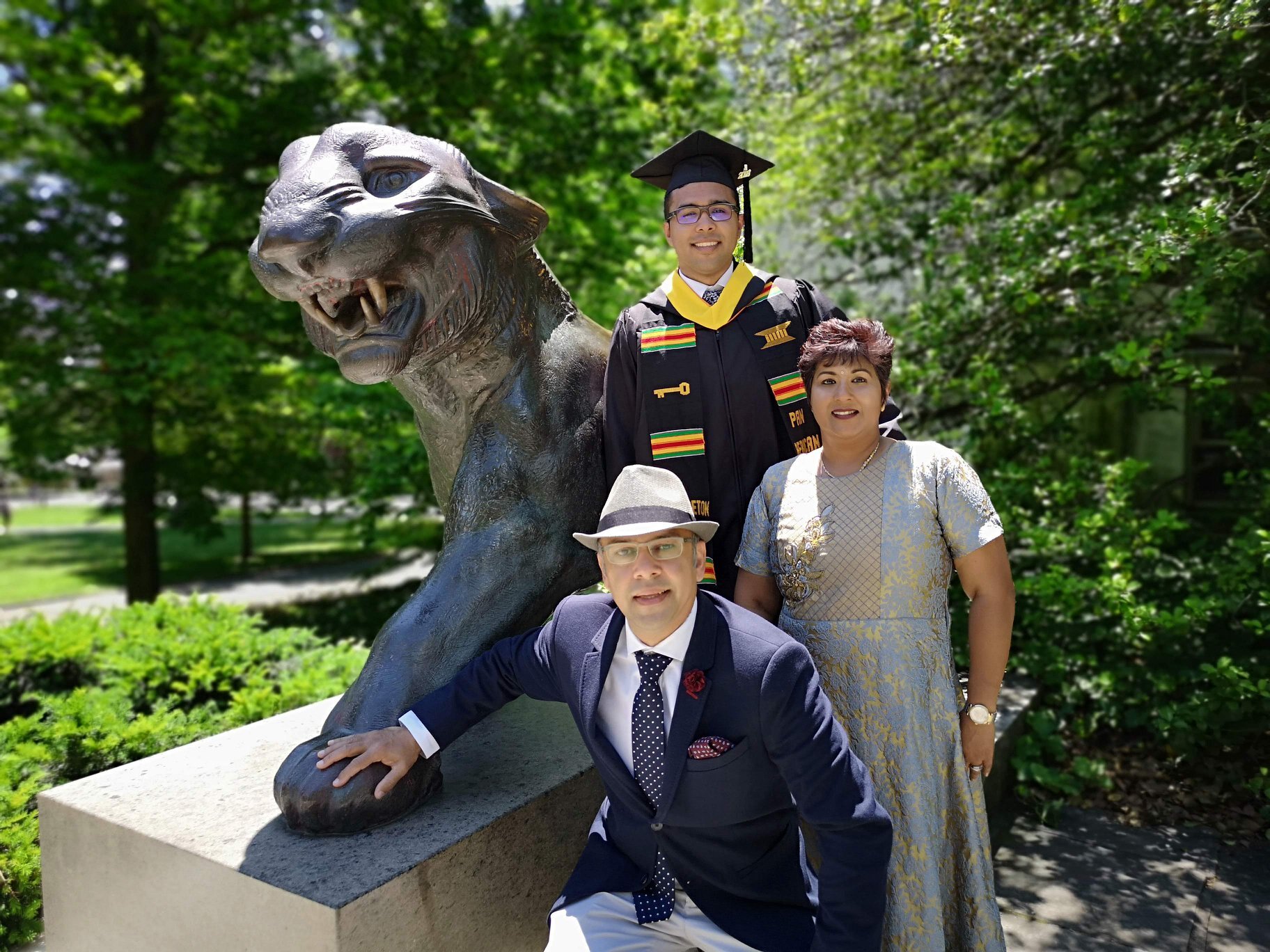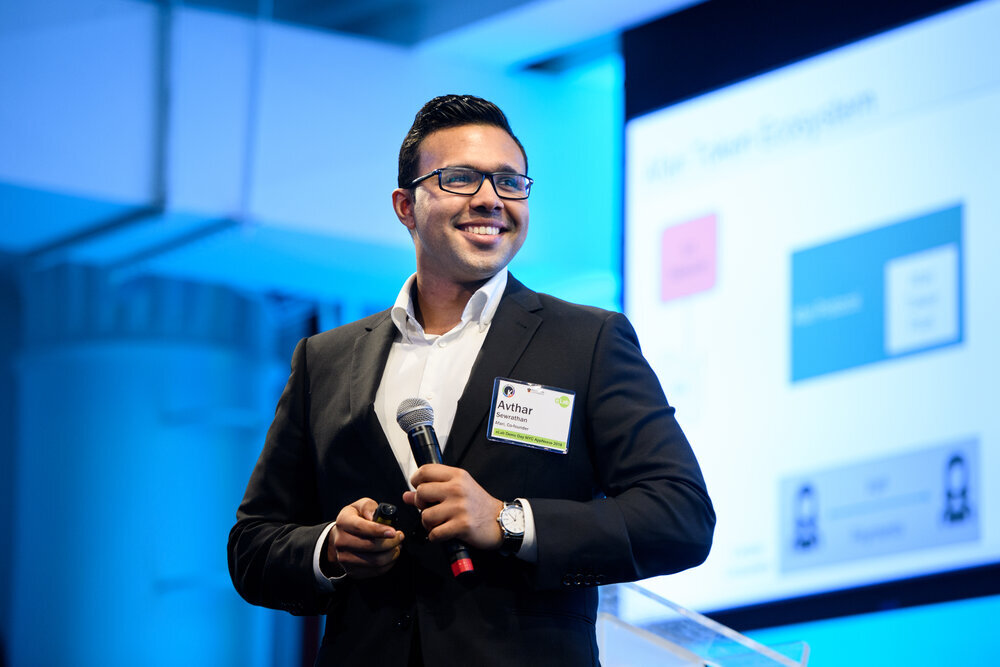South Africa. Costa Rica? Princeton!: My educational journey as a global citizen
As a child born into post-apartheid South Africa, I could never have dreamt of attending university in the United States, let alone graduating from the #1 ranked university in the US. People like me didn’t do things like that. And yet in 2018 I did just that, when I graduated Princeton University with a degree in Computer Science and Entrepreneurship.
However, unlike most international students at US colleges, I don’t come from wealth. I didn’t attend private schools growing up, nor did I go for SAT prep classes or work with a private college guidance counselor. My journey involves a science Olympiad in Nigeria, a debate tournament in Slovakia, moving to Costa Rica without knowing a word of Spanish, and making friends with young people from over 100 countries all over the world.
This is the story of my journey from Pietermaritzburg, South Africa to Princeton, USA and my education as a global citizen.
A photograph with my grandparents before my freshman year at Princeton University in 2014 (top) and on my first day of primary school in 2002 (bottom)
1.Pietermaritzburg, South Africa
I was born and raised in Pietermaritzburg, a small, quiet town in the Kwa-Zulu Natal province on the east coast of South Africa.
I do not come from wealth (my parents are both public servants), but I most certainly do come from privilege. I was privileged that my parents instilled the value of education in me from a young age. I grew up with a love for learning and school. As a child, I loved school. I didn’t miss a day, even if I was sick.
My maternal grandfather (“Nana” as he was affectionately known) instilled in me a love for reading. He was a retired high school principal and would routinely give me books from his collection that were meant for people more than 10 years older than me, since the age of 7 or 8.
As a result, I excelled academically through a combination of natural talent and lots of hard work - another value instilled by my parents since my early days. I watched them both sacrifice for my sister and I and even reject promotions and career advancement in bigger cities so that their children could enjoy an uninterrupted education.
When I began high school, my academic journey was going about as good as my parents and I could’ve imagined. I won an academic scholarship to attend a well-respected public high school in our city, and I was on track to making my family proud when my matric exam results were published in the local newspaper when I finished grade 12 (an annual tradition for high school seniors in South Africa).
Unfortunately, I never ended up finishing high school in South Africa, all thanks to a fateful week in Abuja, the capital city of Nigeria.
2. Abuja, Nigeria
At the age of 15, I was one of 6 students selected to represent South Africa at the 2010 International Junior Science Olympiad (IJSO). You can think of it like the Olympics, with competitors from all around the world, but for teenage nerds. And instead of the 100m sprint and the high jump, we had theory and lab exams in biology, chemistry and physics.
And like all Olympic hopefuls, I dreamed of returning home with a medal around my neck. This, sadly, never happened. However, the experience of meeting hundreds of young people from countries like India, Brazil, Estonia, Kenya who shared my passion for academics and science changed the course of my life.
Looking back, you could call it ‘networking’, but myself and the rest of team South Africa were just sincerely making friends because we found the other people genuinely cool and interesting. And they found us interesting too — especially because they couldn’t wrap their heads around the fact that there were Indian, Black, and White kids representing South Africa.
Presenting Team South Africa at the “Cultural Evening” at the 2010 International Junior Science Olympiad, in Abuja, Nigeria.
The students I met at the IJSO opened my eyes to the world outside South Africa, and to the fact that people did things differently in other countries — everything from the card games they played to their maths and science curricula. And in turn, I had the opportunity to be an ambassador for my country, sharing stories with them about life in South Africa, the country’s politics and history, and my favorite football team and TV shows. I loved the international environment: both learning from other cultures and countries, and sharing my own with others eager to learn about it.
Me (left) and my teammate Llyod Mahadeo (right) with some of the new friends from Russia and Brazil at the 2010 International Junior Science Olympiad, in Abuja, Nigeria.
And most importantly, in the year following the event I heard news of my newfound friends getting acceptance letters to some of the world’s best universities, like Princeton, Stanford, and Cambridge. This kindled a desire within me to study abroad -- partly to reunite with them and recreate that electric international environment from the science olympiad, and partly to prove to myself and to the world, that despite coming from the South African education system, and despite not getting a medal at the Olympiad, I was indeed capable and no less than them.
3. Pietermaritzburg, South Africa (Part 2)
In the year following the science olympiad, I worked with fresh motivation to reach beyond the boundaries of what was immediately accessible to me in South Africa. I no longer relied on the pace of learning set by my teachers and began to own my own learning process: reading ahead and teaching myself upcoming Physics and Chemistry topics on weekends and evenings. I continued to do well academically, but was becoming increasingly bored and burned out from my high-school’s hyper-competitive academic environment and the pressure to remain the top student or face public humiliation (my school announced the top 10 students in each grade at an assembly of the whole school every 6 months).
Stoic philosopher Seneca once said, “Luck is what happens when preparation meets opportunity” and unbeknownst to me, I had been preparing for a life-changing opportunity. And in mid 2011 I was about to discover what it was.
A schoolmate of mine, Sidingo, who was two grades ahead, had left our high school in South Africa to study abroad. He came back to speak about his experience to just one, single class of 30 in the entire school of about 1000 boys: my top set grade 10 English class.
He told us about the amazing year he just had at United World College (UWC), a school whose mission it was to make education a force to unite people, nations, and cultures for peace and sustainability. He told us about the many campuses around the world that UWC had, and about his time at the one in Canada, with students from more than 70 countries. He told us about the rigorous academic curriculum of the International Baccalaureate and how UWC had opened the door for him to study abroad for university in the US. And he cheerfully recounted stories about how he spent his final two years of high school living and learning with people from all over the world, and making friends and memories in the process.
United World College (UWC): UWC’s mission is to educate a diverse group of people to become happy, healthy and committed individuals, capable through their leadership and engagement, of fostering positive change in their communities in order to contribute to achieving a more sustainable and peaceful world.
I was instantly captivated by UWC, so much so that I tried to apply later that weekend. Unfortunately, I was met with an email telling me that I’d have to wait a few more months for the selection process to begin. Not only was it a vehicle to pursue my goals of studying abroad in the US or UK, but it promised me the international environment in which I felt at home that I first tasted at the science olympiad in Nigeria.
4. Bratislava, Slovakia
It turned out that I was well positioned to get into UWC. I had achieved academic success in primary school and high school -- as one of my friends put it, I’d been ranked 1st “since they started counting”. My experience making friends at the International Junior Science Olympiad in Nigeria and my desire to return to a similarly diverse environment also counted in my favor. But an equally important factor was my love for, and mastery in, my main extracurricular activity: debating and public speaking.
Through debating, I learned the fundamentals of arguing and how to talk intelligently on just about any topic, especially current affairs happening in South Africa. It also taught me to think quickly on my feet: the format I participated in (World Schools Debating Championships format) required debaters to speak after learning the topic just 1 hour before. This helped me greatly in the interview process for UWC.
Rather than applying to UWC schools directly, I applied through the UWC South Africa national committee. The committee was run by alumni volunteers, who ran the selection process and then placed students in one of the now 18 colleges around the world, in places like Italy, India, Wales and the US. The application process consisted of a written application, a regional selection interview, and a final multi-day national selection interview. After sending in my application, I was invited to a regional selection day in Durban where we had one-on-one interviews with the judges, as well as group chats with the other applicants, where we discussed questions like “Which South African political figure would you most like to be?” (I chose then ANC Youth League president Julius Malema). While the application and regional interview were rigorous, my academic achievements, comfort with public speaking and natural extrovertedness when meeting new people helped me convince the judges.
However, my UWC dream almost didn’t happen. I was about to depart for Bratislava, Slovakia to take part in a debating tournament involving teams from around the world, when I received an email informing me that I’d been selected for the final round of interviews for UWC. Wonderful news! Except that the selections would be happening in Johannesburg the next weekend, when I would be debating in Slovakia.
I panicked. I wanted more than anything to attend the national selections and knew that if I didn’t, my UWC dream was over. But I also didn’t want to let my team down and miss an experience that I’d been training months for.
This was the first time I recognized a theme which has since played a huge role in my life: Most rules are not rules at all, but simply suggestions. And you can, with the right finesse, work around any rules that seem to stand in your way. This applies especially to things like deadlines, requirements, and “mandatory” events like this.
After consulting with my mother, we wrote to the folks running the national committee and asked for an alternative since I’d already committed to this debate tournament and that this experience would make me an even stronger candidate for adjusting to and thriving at UWC. They replied saying that they would “see what they could do”. And I set off for the tournament, not knowing if I had just missed my shot.
The tournament, named the Bratislava Schools Debating Competition, turned out to be a great success. After debating issues like the value of the “free internet” and military intervention in Syria, my team finished runners-up and I placed second overall in the individual speaker rankings. I also met young people who shared my passion for debate from all over Europe and from as far as Singapore. The day after the finals, just before boarding my first flight for the multi-legged journey back to South Africa, I got an email from the folks on the UWC national committee, asking to meet me in a hotel for an interview on the evening I was to arrive back from Slovakia. The dream was still alive!
(Left): My speech in the final of the debate competition. (Right): Some of our debate team with our new friends from Singapore.
I met three or four folks from the national committee, alone, in a hotel conference room in the Joburg CBD. I told them about the impact my experiences in Nigeria and Slovakia had on me and how I wanted to experience a diverse, multi-cultural environment with people from all over the world for not just 2 weeks, like I did at the science olympiad and debate tournament, but for two entire years.
A few weeks later, I received a call telling me that I’d been awarded a scholarship to attend UWC and that I’d be spending the rest of my high school career with 150 other students from 70+ countries at the UWC in... Costa Rica!?
5.Santa Ana, Costa Rica
As much as I’d prepared myself for the challenge of UWC, I didn’t comprehend the absurdity of what I’d gotten myself into until my first day in Costa Rica. I would be away from my family for two years, in a foreign country 12,141 kilometers (7,544 miles) away from home, and didn’t speak a word of the national language, Spanish.
But I knew that this was my chance to make friends from all over the world, to prove myself academically, and lay the foundation for me to attend university abroad, just like my friends from the science olympiad did. So I rolled up my sleeves and set about making the most of my opportunity there.
I began adjusting to the notoriously difficult International Baccalaureate, the curriculum they taught at UWC, which was much faster paced and much more rigorous than my public school curriculum back in South Africa. I chose classes that piqued my curiosity but also pushed me academically. I also set about learning Spanish. My first words I learned were “Arroz y Pollo”, which means “Chicken and Rice” so that I could point out what I wanted to eat to the tias and tios in the dining hall.
While I did my fair share of socializing and merry-making, I was focused on my academics and CAS (the IB extra-curricular program standing for Creativity, Action and Service), and conducted myself with a steely determination to not let this opportunity slip. I surrounded myself with like-minded friends: folks with similar academic goals, many of whom came from developing countries as I did and who saw UWC not just as a memorable experience to take back to their home countries, but as a platform to launch them toward a better life and make their impact on the world.
Celebrating Costa Rica’s Independence day dressed in national clothing at the parade with fellow UWC students in Santa Ana, Costa Rica.
I took up an interest in memory and learning, and went as far as teaching myself how to speed read during Spring Break of my first year (instead of partying at the beach), so that I could perform better on my SATs and study more efficiently for the IB. I wrote my capstone project (the Extended Essay) during my summer break and started my university planning process using advice from my seniors way before my school’s university counsellor ever approached me to think about what was next after UWC. I even spent many Saturday nights tutoring fellow students who were in the grade above me in Maths as a way of getting more practice, when I probably should’ve been out partying. That gives you an idea of how seriously I took the opportunity in front of me. Looking back, I was perhaps a bit too intense. But if I had to do it all again, I wouldn’t change a thing: I would do all those same things again (just with less fear and stress), because I was intrinsically motivated and working toward something I valued.
Thanks to my hard work and a lot of luck, I gained admission to Princeton University, among a host of other top US colleges like Dartmouth University, University of Chicago and Harvey Mudd College. I had great ambitions for myself and felt I could use the resources of a university like Princeton to realize my vision of using technology to empower people in Africa and all over the world by gaining an education in engineering and entrepreneurship there.
But what about the money? There was no way my parents could afford the nearly $70,000 annual tuition at a school like Princeton. Thankfully, my dream of studying in the US was made possible by Princeton’s generous financial aid policy (I received 90+% financial aid and no student loans) and by the Davis United World College Scholars program, co-founded by American investor Shelby Davis, which gave every UWC student who attended select colleges in the USA up to $20,000 every year in scholarship, which gave US colleges an extra incentive to accept UWC students. This was one of the unexpected blessings of attending United World College - something I’m grateful for to this very day.
My time at UWC was transformative, not just academically, but physically and socially too: I found a passion for health and fitness and lost 24 kgs (50+ lbs) in my first year there (I talk about this experience in my TEDx talk). I also made friends for life, thanks to going through the shared experience of becoming independent and seeking acceptance, love, and belonging in our small microcosm of the world, and ultimately discovering that it lay within ourselves and in our interconnectedness. My group chat with my close friends from Vietnam, China, Spain and Macedonia is still active, almost 8 years since I graduated from UWC.
Some of the close friends I made at United World College Costa Rica (from places like Thailand, Vietnam, Sudan and China) on our graduation day.
5. New York City, USA
I’ve lived a life beyond the wildest dreams of 15-year-old Avthar, who was wide eyed and ready to make a ruckus at the international science olympiad. During my time at Princeton, I found my calling in technology entrepreneurship - combining my interest in science with my desire to make a scalable impact through business. I realized that I wasn’t just a “technical person” and that my true strengths lay at the intersection of people and technology. After many long nights spent working on programming assignments with friends, writing essays for Dean’s date and probably too many late meal delicacies (read: chicken tenders and fries), I graduated Princeton University with a degree in Computer Science and Entrepreneurship.
My parents and I celebrating my graduation from Princeton University.
During that time, I made more friends from all over the US and from around the world, worked abroad in Argentina and, as a reaction to the challenges and difficulties at an elite American college, picked up a passion for philosophy and self-development.
I even achieved the goal I wrote about in my college application essay -- starting a company in college and working on it full time after graduating. Some friends and I turned my senior research project into a venture-backed startup and pursued it full time. Today, I live in New York City, working in the tech industry while writing essays on the side, pursuing my purpose of living a peaceful life of contribution.
Pitching Afari, the startup I founded with friends from Princeton, at a demo day in New York City.
One thing I’m proud of is that I found my own way. I didn’t get where I am today by trying to copy everything I saw someone else do, or doing what people said I should do, whether it was attending a private school, winning a medal at an international science olympiad or even showing up to the mandatory national selections for UWC on time.
My journey taught me that there are many paths to greatness. And while I did take inspiration from others, like my friends from the science olympiad and my schoolmate who serendipitously told me about UWC, I had to do it my own way and embrace a path that was uniquely my own. I hope my story inspires you to stay true to yourself and embrace forging your own path as you strive to achieve your goals and pursue your purpose. Pura Vida!
Special thanks to Chris Wong, Maile Pedersen, Anthony Polanco and Matt Verlaque for their feedback on this essay.
